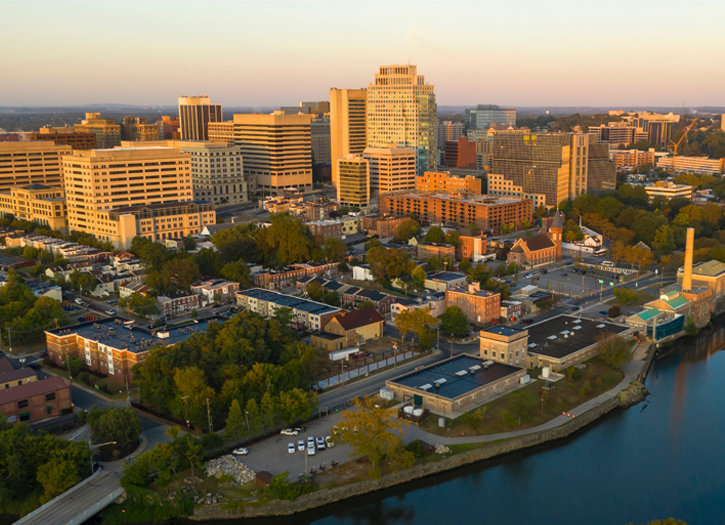The COVID-19 pandemic was reported to have reached the U.S. state of Delaware on March 11, 2020, in New Castle County. The following day, March 12, Governor John Carney declared a State of Emergency for the State of Delaware due to a Public Health Threat. As of September 25, 2020, the Delaware Division of Public Health reported 20,085 positive cases of COVID-19 among Delaware residents since the first case on March 11, 2020, including 10,517 recoveries.
On March 12, Delaware Governor John Carney declared a state of emergency. This allowed for the Delaware National Guard to take precautionary actions and prepare for further response to the disease, for the state to conduct public meetings electronically, and prevent the price gouging of goods. Governor Carney also recommended that all non-essential public gatherings of over 100 people be canceled, following CDC guidelines. Three more positive cases of coronavirus were confirmed on March 12.On March 13, the Downtown Dover Partnership announced the cancellation of the St. Patrick’s Day parade due to coronavirus concerns. Late on March 13, Governor Carney closed all Delaware Public Schools from March 16 to 27.
On April 24, Governor John Carney made the decision to close all Delaware schools for the remainder of the 2019–20 academic school year. In preparation for the 2020-2021 school year, Governor Carney signed on August 26 the Twenty-fifth Modification of the Declaration of a State of Emergency for the State of Delaware Due to a Public Health Threat. This Declaration ordered all Local Education Agencies (LEAs) to follow instructions from the Delaware Department of Education (DDOE). The order also addressed school notification for Covid-19 positive cases, face coverings for students K-12, in-person education, child care, and other guidelines. On March 17, The Delaware Division of Libraries announced that all Delaware Public Libraries were to be temporarily closed until further notice.
Delaware Governor John Carney declared a state of emergency on March 12, allowing for the Delaware National Guard to prepare for the coronavirus’ spread.He would close all public schools in the state on March 13.The City of Dover canceled all permits for event gatherings of over 100 people on March 13, citing the governor’s recommendations.On March 16, all public libraries within Delaware have been closed until further notice. Restaurants were ordered to stop dine-in services at 8 pm EST, moving to take-out and delivery only services. On March 29, Governor Carney ordered all travelers from outside the state to self-quarantine for 14 days upon arriving in Delaware. Exemptions from the self-quarantine requirement included people only traveling through Delaware, people traveling to an essential job, and people traveling to care for family members.
On September 15, 2020, the Delaware Division of Public Health, in partnership with the University of Delaware, launched the COVID Alert DE app. By exchanging anonymous, randomly-generated digital code, the app uses Bluetooth technology to alert users if they have been in close contact (less than 6 feet for more than 15 minutes) with someone who has tested positive for COVID-19.By September 19, the University of Delaware vowed to crackdown on social distancing violations amid the largest single day spike of infections for the state, with 34 students testing positive for COVID-19.
On March 12, the Delaware Interscholastic Athletic Association (DIAA) cancelled the Delaware high school basketball season, leaving four boys teams and four girls teams remaining in the basketball state tournament. Governor John Carney closed schools for two weeks; schools would not reopen during the 2019–2020 school year, and no spring sports competitions were held. The Twenty-Sixth Modification defined sports activities as high, low, or medium risk according to levels of high contact, no direct physical contact, or intermittent contact, respectively.
The order provided additional requirements about face coverings, social distancing, sanitizing, and general and risk-based requirements. The DIAA board then voted on September 10 to allow fall season sports to start on September 28th; this board decision was approved by the State Board of Education on September 17. In college sports, the National Collegiate Athletic Association canceled all winter and spring tournaments, most notably the Division I men’s and women’s basketball tournaments, affecting colleges and universities statewide.







Add Comment